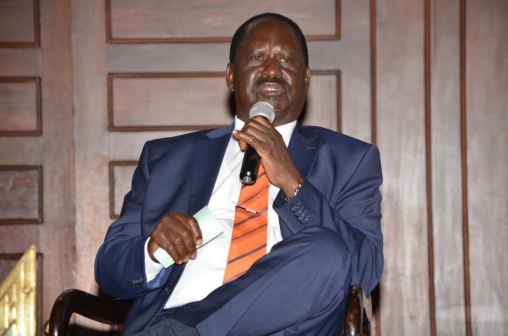×
The Standard e-Paper
Home To Bold Columnists

The ICC's failure to try top Kenyan leaders for crimes against humanity in the country's worst violence since independence spells "doom" for global efforts to fight impunity, former Kenyan Prime Minister Raila Odinga told AFP.
Despite this setback, African countries must not quit the International Criminal Court as the continent is "the biggest violator currently of human rights", the ex-prime minister said.